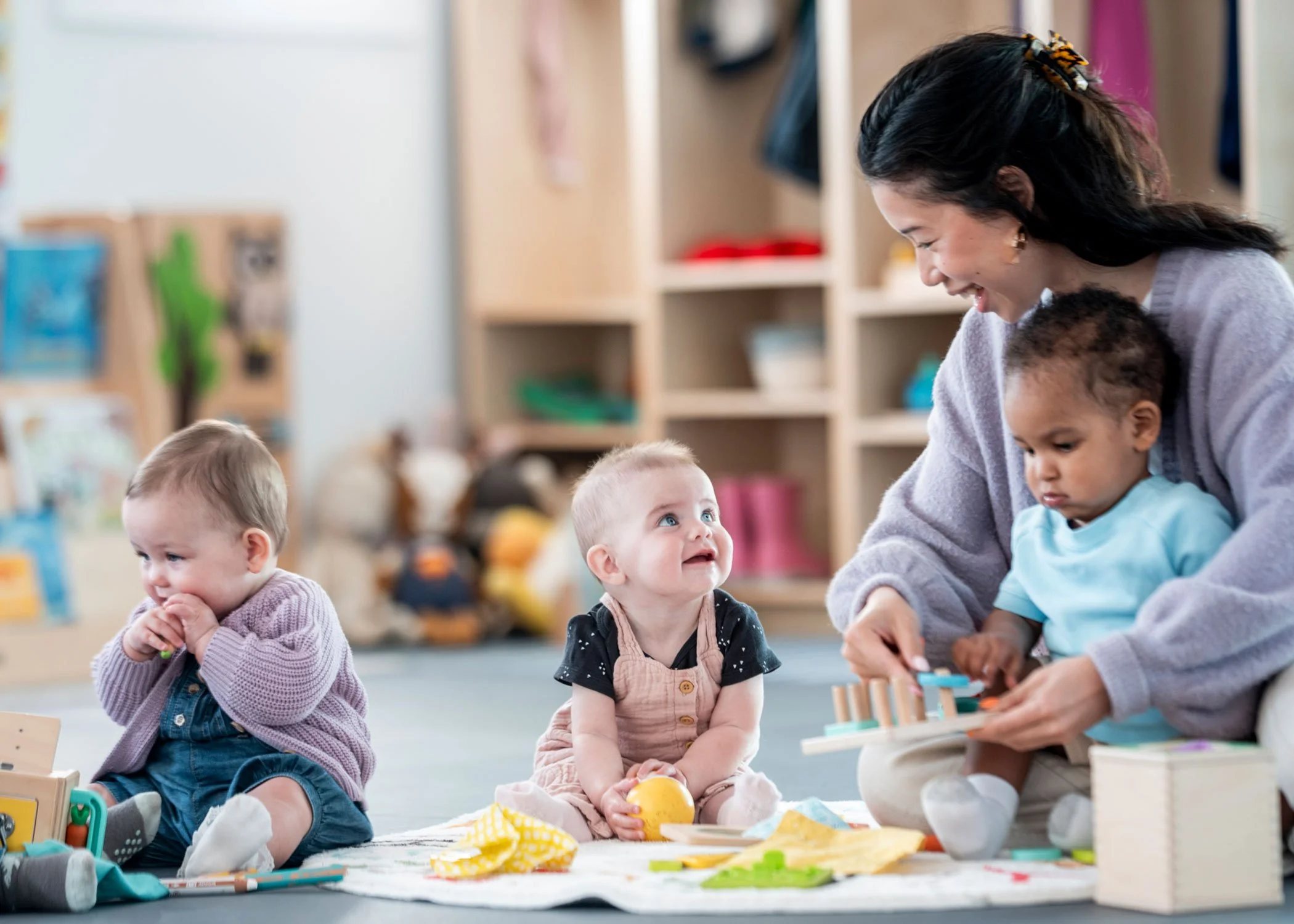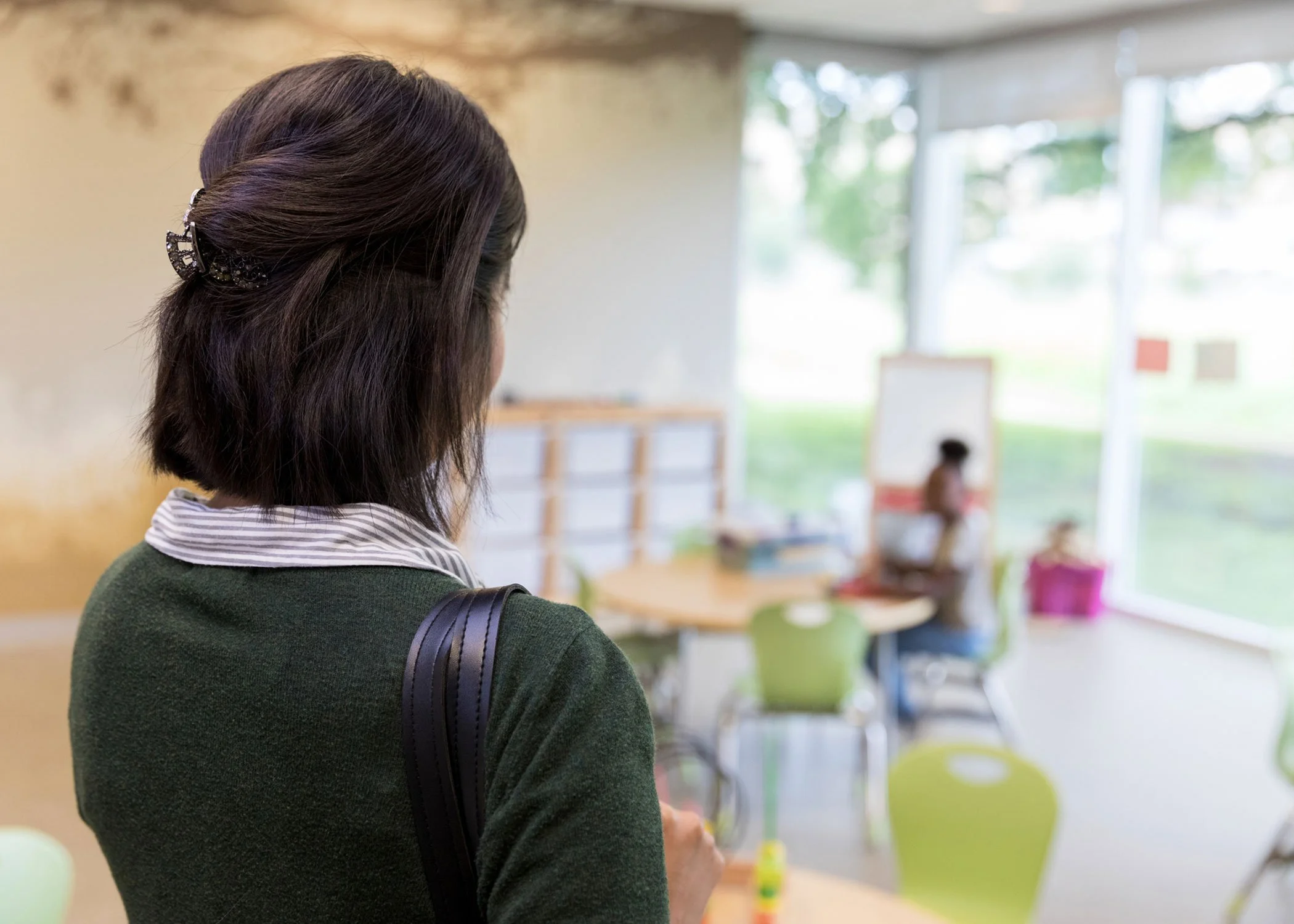How to Prepare Your Child for the First Day of Daycare
Yes, even infants can transition smoothly—with the right support.
Whether your child is a few months old or almost ready for preschool, the first day of daycare marks a powerful milestone. It’s not just about entering a new space—it’s about entrusting someone else with your child’s care, emotions, and routine. And that takes courage.
At Tiny Scholars, we understand how emotional and complex this transition can be—especially for parents of infants. The good news is: a thoughtful, gradual approach makes all the difference. With the right preparation, families can experience a transition that feels secure, supportive, and even joyful.
Here’s how to prepare—whether your child is still in nappies or already running across the room.
1. Know That Attachment and Care Go Hand-in-Hand
One of the biggest concerns for parents of infants is: Will my baby bond with someone else?
The answer is: yes—and it will strengthen your bond, not replace it.
Tiny Scholars' Heart-to-Heart programme is rooted in attachment theory. Every infant is assigned a primary educator who responds consistently to cues, offers nurturing care, and builds trust over time. This allows your baby to feel safe, calm, and emotionally secure—even in your temporary absence.
For infants, the goal is not independence. It’s consistent, loving presence—something our educators are deeply trained in providing.
2. Start Building Gentle Familiarity
Well before the first day, begin introducing the concept of a new caregiver and space. Even for young infants, emotional tone and facial expressions communicate safety.
Show your baby photos of the centre or educator (if available)
Visit Tiny Scholars together for a few short sessions
Hold your baby while they observe the environment
Babies absorb more than we realise. Familiar smells, faces, and sounds begin to feel like part of their world when introduced gradually.
“Even for young infants, emotional tone and facial expressions communicate safety.”
3. Practise the Rhythm of Separation
For infants and toddlers alike, predictable routines reduce stress.
In the days leading up to the start, try short, positive separations with a trusted caregiver while maintaining consistency in how you say goodbye:
Use a simple phrase like “Mummy will come back after your nap.”
Keep goodbyes calm and confident—never rushed or sneaky
Allow time to reconnect warmly upon return
At Tiny Scholars, our educators offer warm arms and soothing voices the moment you step away, helping your child bridge the emotional gap.
4. Share Everything With the Educators
Infant care isn’t one-size-fits-all. Your baby’s cues, feeding habits, nap patterns, and soothing rituals matter deeply. That’s why we work with each family to co-create an individualised transition plan.
Before your child’s first day, let us know:
How they prefer to be comforted
Feeding schedules (bottle or breastmilk preferences)
Nap signals and sleep routines
Favourite lullabies, pacifiers, or blankets
Medical needs, allergies, or recent developmental milestones
Tiny Scholars treats parents as co-navigators. You’re the expert on your child—we’re here to extend your care with consistency and compassion.
5. Pack With Love and Familiarity
A well-packed daycare bag can be a bridge from home to care. For infants, we suggest including:
Extra clothing
Swaddles or sleep sacks
Milk, bottles, feeding instructions
A comfort item with your scent (e.g., a muslin cloth)
A short written note for educators (daily mood, updates)
Tiny Scholars welcomes and encourages items that bring comfort during the day. These small details make a big difference in emotional regulation for infants and toddlers.
6. Prepare Yourself, Too—Emotionally and Practically
It’s completely natural to feel guilt, sadness, or worry on the first day—especially if this is your first time separating from your baby.
Know this: you are not “leaving” your child. You are extending their world to include more loving, supportive adults. And you are giving yourself space to return to work, rest, or simply breathe.
Tiny Scholars stays in close communication with parents during those first weeks. You’ll receive photos, updates, and quick messages throughout the day, helping you stay connected even when apart.
7. Celebrate the Small Victories
The first week of daycare isn’t about perfection—it’s about progress.
Maybe your infant took a full bottle from their educator. Maybe your toddler waved goodbye for the first time. Maybe you managed not to cry until after drop-off.
Celebrate each of these moments. They’re signs of growth, trust, and resilience unfolding.
Tiny Scholars creates a rhythm of consistency and care that gently leads families through this beautiful transition—with hearts intact.
🧡 We’re With You, Every Step of the Way
At Tiny Scholars, you’ll never walk through a first day alone. Whether your child is four months old or four years old, our team is ready to support the emotional, developmental, and practical steps of settling into daycare.
📅 Book a Tour and let us show you how we prepare our environment for calm, connected beginnings.
📞 Contact Tiny Scholars to ask about our infant and toddler transition programme.
Your baby is not too young to thrive—and you’re not alone in making this first step matter.








